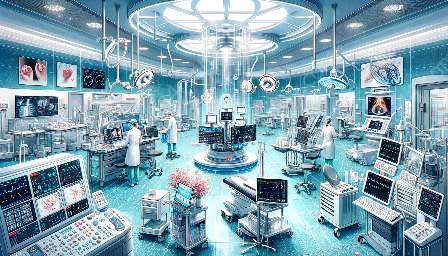Biotechnology and medical devices are two innovative fields that intersect to pave the way for personalized healthcare solutions. Biotechnology leverages biological systems and organisms to develop products and technologies that improve healthcare and medical devices cater to patient-specific needs. This article will explore the indispensable role of biotechnology in the creation of personalized medical devices, highlighting the groundbreaking advancements and transformative impact on patient care.
The Intersection of Biotechnology and Medical Devices
Biotechnology and medical devices come together at the cutting edge of healthcare innovation to create bespoke solutions for patient needs. With the advancements in biotechnology, medical devices can incorporate personalized genetic and molecular information to provide tailored treatments and precise diagnostic tools, revolutionizing patient care by offering customized solutions.
Improving Targeted Therapies
Biotechnology plays a pivotal role in enhancing targeted therapies through the development of personalized medical devices. By harnessing biotechnological advancements, medical devices can deliver precise drug dosages and monitor patient responses, optimizing treatment outcomes while minimizing side effects. This personalized approach is transforming the landscape of healthcare, offering patients more effective and tailored treatment options.
Leveraging Genomic Data
Biotechnology enables the integration of genomic data into the creation of medical devices, allowing for tailored solutions based on an individual's genetic makeup. This integration empowers the development of diagnostic tools and treatment devices that are specifically designed to address the unique genetic characteristics of each patient, leading to improved accuracy and efficacy in healthcare interventions.
Advancements in Tissue Engineering
Biotechnological breakthroughs have led to significant advancements in tissue engineering, enabling the creation of personalized medical devices such as artificial organs, prosthetics, and implants. These innovative devices are customized to fit the precise anatomical and physiological requirements of individual patients, offering improved functionality and compatibility, ultimately enhancing the quality of life for recipients.
Implantable Biomedical Devices
Biotechnology contributes to the development of implantable biomedical devices that are tailored to the specific needs of patients, providing targeted delivery of therapeutic agents, continuous monitoring of physiological parameters, and real-time feedback to healthcare providers. These personalized devices are designed to seamlessly integrate with the patient's body, offering enhanced treatment precision and improved therapeutic outcomes.
Transformative Impact on Patient Care
The synergy between biotechnology and medical devices has significantly impacted patient care, offering personalized solutions that address individual variations in genetics, physiology, and medical conditions. Through the creation of personalized medical devices, patients can benefit from customized treatments, reduced risks of adverse reactions, and improved overall healthcare experiences. Biotechnology-driven medical devices are empowering healthcare providers to deliver precision medicine tailored to each patient's unique needs, marking a paradigm shift in the practice of personalized healthcare.


